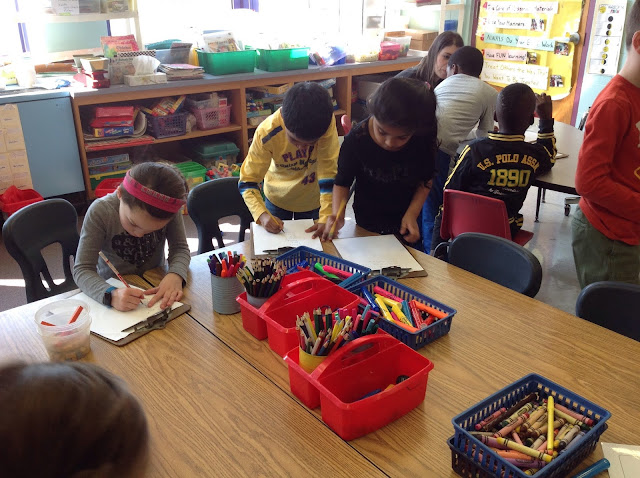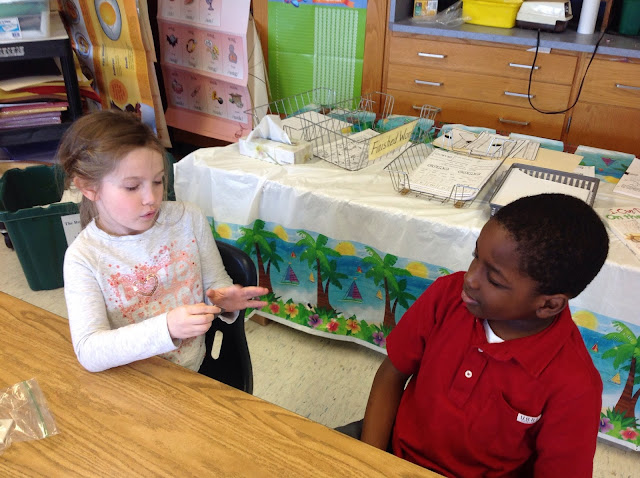Exploring the Properties of Solids, Liquids and Gas
We began our exploration of matter by first asking the question: "What is matter?" After determining that matter is everything around us that has mass and takes up space, we learned that all matter is made of particles. We then used our bodies to illustrate how closely the particles in matter are in solids, liquids and gasses.
 |
| Solids |
 |
| Liquid |
 |
| Gas |
2. We then broke into groups and found an object in our room which best represented our state of matter.
 |
| The Solid Group |
 |
| The Gas Group |
 |
| The Liquid Group |
3. We then grabbed our clipboards and a pencil and had a fun scavenger hunt to find and list all of the solids that we could find in the classroom!
We listed together some of the solids that we found:
4. Next we broke into groups and explored a bag of "solids," listing the different properties that each one possessed. We used our senses of touch and sight to describe the solids:
5. Next we explored what solids were made of using touch and sight:
6. We then played a game in which partner #1 chose a solid from the bag and described it to partner #2 with words. Partner #2 then had to determine which solid partner#1 was describing:
In the end, we discovered what was true of all solids:
We created a chart to document what materials our objects were made of in our Science Notebook:
Then it was time for us to explore the
Properties of Liquids!
We documented how temperature changed the properties of liquids in our Science Notebook:
Finally, we performed a fun experiment to see how a liquid and a solid could change into something else.
 |
| We took a bottle filled with vinegar... |
 |
| ...and attached a balloon filled with baking soda. |
 |
| What do you think will happen when I dump the baking soda into the bottle filled with vinegar? |
 |
| Let's see. It turns into a... |
 |
| ...what's happening to the balloon? It's being filled with... |
 |
| ...a GAS!!! |
Let's document this in our iPad Science Notebooks...


















































